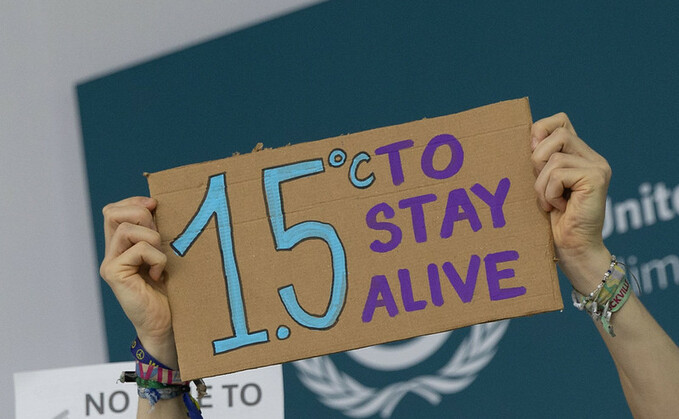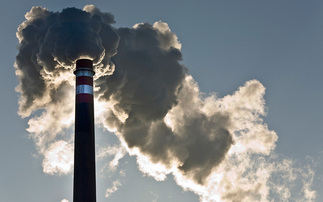
Green groups have condemned the COP29 finance package as a betrayal of developing nations, but it has the potential to provide a big chunk of the trillions of dollars of climate investment the world needs
Is the new climate accord a Baku 'bad deal'? Would no deal have been better? Did the new finance package agreed at COP29 amount to a 'global Ponzi scheme'? As ever, it's complicated.
The case for declaring it a terrible deal is compelling. Developing nations reckon they need in the region of $6tr a year to decarbonise in line with the goals of the Paris Agreement and ruggedise their infrastructure in preparation for escalating climate impacts. They came to COP29 requesting $1.3tr from industrialised nations and would have privately hoped for $600-700bn a year through to 2035. They called for strong safeguards to ensure the bulk of the funding comes from grants that do not add to their already crippling debt burdens. And they wanted serious progress on decarbonisation efforts to try and avert the 3C of warming that threatens to overwhelm their economies.
They got a $1.3tr headline climate finance goal, but scant idea as to how it should be met. The core funding commitment from richer nations landed at just $300bn, which will not be met until 2035 and which includes few if any safeguards to ensure most of it comes in grants. The promise to build on last year's UAE Consensus and its historic commitment to transition away from fossil fuels was steamrollered by Saudi wrecking tactics, which even seasoned COP observers described as some of the worst they had ever seen.
A COP29 Presidency inexperienced in the knotty business of multilateral diplomacy squandered much needed good will through a frustrating lack of transparency and a willingness to let the complex negotiating process drift for days at a time. The landing zone for a credible compromise deal that should have been obvious from day one came into focus far too late, making it easier for those looking to block a deal to drastically dilute the levels of ambition.
The net result is a deal that condemns the most climate vulnerable nations to a world of still rising emissions, worsening climate impacts, and crippling debt. Richer nations will also face blowback from this failure, as extreme weather intensifies everywhere, climate migration increases, and geopolitical tensions between the Global North and South ratchet upwards. It is little wonder that as the clock ticked down a group of the world's poorest nations walked out of the talks in frustration at the way their concerns were being ignored.
The talks started with warnings temperatures were on track to exceed 3C of warming this century and two weeks later little has changed. Protestors gathered in a corner of the sparsely populated conference halls shouted 'shame' - they were right to do so.
However, there is a more generous narrative available that suggests the deal finalised in Baku represents a genuinely historic step forward that may yet help to unlock a drastic increase in the flows of climate finance that are desperately needed.
The text acknowledges what is needed is flows of climate finance in the trillions not the billions. The $1.3tr headline goal may refer to investment in developing economies from anyone and everyone, including from within those economies themselves, but it does provide both a target and a signal to the businesses and investors as to the epic scale of the clean tech opportunity.
Similarly, the $300bn target is inadequate on multiple levels, but it is three times larger than the current $100bn a year goal and suggests a significant uptick in funding from industrialised economies is on the way, alongside multilateral development banks and private sector investment in clean energy and climate resilience projects.
Significantly, developing economies have secured a commitment to a new 'Baku to Belém Roadmap to 1.3T', which will provide a much-needed forum to advance the various reforms to taxes and financial institutions that have been mooted for several years as part of Barbados Prime Minister Mia Mottley's Bridgetown Agenda. It remains entirely possible to bridge the gap between the $300bn target for finance from industrialised nations and the overarching $1.3tr. There is growing momentum behind a raft of proposals to ramp up investment and push down the cost of capital for developing economies, ranging from aviation and financial transaction taxes to special drawing rights and carbon market mechanisms. The new Roadmap may finally push governments to give these ideas due consideration.
On carbon markets there was a significant agreement on Article 6 of the Paris Agreement, which countries appear broadly happy with and which supporters of carbon markets reckon could unlock a major new market of country-to-country carbon trades. Campaigners remain very wary of the role of carbon markets in meeting net zero targets, but the new rules represent a step forward in terms of market standards and transparency.
The lack of a cover text and the Presidency's failure to provide a clear narrative for the talks will have dampened the market signal for governments and businesses around the world. But the overarching message remains that flows of climate finance into the Global South should ramp up significantly over the coming decade.
Meanwhile, for all the frustration at the blocking tactics of the Saudi-led coalition of petrostates - which, crucially, does not include all petrostates - it does increasingly feel like a rear-guard action. It remains surreal so few countries can stop the international community from explicitly naming the fossil fuels that are the primary driver of the climate crisis, especially after what should have been a precedent-setting call last year for countries to 'transition away' from fossil fuels in energy systems. The shock move to defer a decision on the UAE Consensus text until next year may look like a win for Saudi Arabia. But everyone knows next year the Brazilian Presidency will push even harder for bolder commitments on climate mitigation and will mobilise a huge coalition in support of its goals.
In the meantime, the global clean energy transition will continue to accelerate, destroying fossil fuel demand with every solar panel installed, every wind turbine erected, and every heat pump and electric vehicle rolling off production lines. According to a report earlier this week, clean energy investment is booming and half of countries are already past peak fossil fuel demand in their energy systems. It is these economic and technological realities - rather than the precise wording of any text agreed in Baku - that will ensure many countries will follow the lead of the UK, the UAE, and Brazil in submitting strengthened national climate action plans in the coming months.
The Baku Summit has been one of the most downbeat and frustrating in recent memory. It was overshadowed by Donald Trump's election victory, undermined by Saudi obstructionism and the Global North's decision to turn up at a finance COP without much new finance, and hamstrung by a Presidency that frustrated the delegations it should have been building bridges with. Ultimately, the deal is largely a function of poorer nations having calculated it would prove even harder to get a new finance target next year with Trump in the White House, potential new governments in Australia and Canada, and the clock ticking down to the end of the current $100bn financial package.
The net result is a deal that is insufficiently ambitious, but which keeps the show on the road and sends clear signals global climate action will continue to advance regardless of the opposition it faces from the world's increasingly vocal climate sceptic reactionaries. Businesses understand climate finance is heading in the direction of trillions, not billions, and savvy companies will respond accordingly. The deal may feel like a failure, but much worst outcomes were available. The dramatic Baku breakthrough may yet have catalysing effects that prove more positive than its critics expect.









